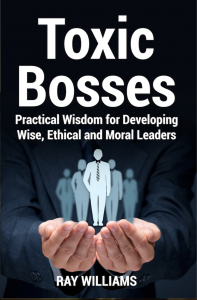By Ray Williams
May 15, 2021
Many super successful people will tell you they were lucky to have been at the right place at the right time. Everyone can’t be at the right place at the right time. According to both fascinating new science highlighted by the MIT Technology Review and a handful of honest entrepreneurs. Luck plays a way bigger role in success than most of us acknowledge. If you try to follow the path of your business role models without acknowledging that fact, you’re likely to run into some very serious problems.
Success, as we all know, isn’t evenly spread throughout the population. In fact, its distribution follows what’s known as a power law curve. A tiny number of people end up with the vast majority of money, or music or movie hits, or whatever other marker of material success you’re looking at.
Alessandro Pluchino at the University of Catania in Italy and a couple of colleagues created a computer model of human talent and the way people use it to exploit opportunities in life. The model allows the team to study the role of chance in this process.
The results are something of an eye-opener. Their simulations accurately reproduce the wealth distribution in the real world. But the wealthiest individuals are not the most talented (although they must have a certain level of talent). They are the luckiest. And this has significant implications for the way societies can optimize the returns they get for investments in everything from business to science.
The researchers argue: “While wealth distribution follows a power law, the distribution of human skills generally follows a normal distribution that is symmetric about an average value. For example, intelligence, as measured by IQ tests, follows this pattern. Average IQ is 100, but nobody has an IQ of 1,000 or 10,000. The same is true of effort, as measured by hours worked. Some people work more hours than average and some work less, but nobody works a billion times more hours than anybody else.” Yet some people do end up with a billion times more money.
The team of Italian scientists built an eye-opening computer simulation of career success. The team created a hypothetical population of people endowed with the standard distribution of talent and intelligence and then ran these individuals through a 40 year simulated working life, injecting both lucky and unlucky events into the timeline. At the end, the researchers checked to see if the resultant spread of wealth matched the distribution of wealth in the real world. It did, again and again. The model held up.
So what drove the unequal distribution of success in the model? Was it that talent and drive compounded over time produced the simulated equivalent of Bill Gates or Jeff Bezos? No, the scientists found that success is mostly a matter of luck.
“It is evident that the most successful individuals are also the luckiest ones,” the scientists report. “And the less successful individuals are also the unluckiest ones.” Talent and effort matter, but pure chance matters a whole lot more. Exceptional performance is often a convergence of the right person at the right time — Winston Churchill and the Second World War, for example. It’s not possible to replicate all the variables of context for anyone at any time, regardless of skills and abilities.
Consider Some of Findings of the Italian Researchers’ Study:
- The chance of becoming a CEO is influenced by your name or month of birth. The number of CEOs born in June and July is much smaller than the number of CEOs born in other months.
- Those with last names earlier in the alphabet are more likely to receive tenure at top departments in Universities.
- The display of middle initials increases positive evaluations of people’s intellectual capacities and achievements.
- People with easy to pronounce names are judged more positively than those with difficult-to-pronounce names.
- Females with masculine sounding names are more successful in legal careers.
In recent years, a number of studies and books–including those by risk analyst Nassim Taleb, investment strategist Michael Mauboussin, and economist Robert Frank– have suggested that luck and opportunity may play a far greater role than we ever realized, across a number of fields, including financial trading, business, sports, art, music, literature, and science. Their argument is not that luck is everything; of course talent matters. Instead, the data suggests that we miss out on an important piece of the success picture if we only focus on personal characteristics in attempting to understand the determinants of success.
The Italian researchers hint at another key strategy for improving your odds of success in a world ruled by chance — place lots of bets. The researchers followed up their simulation by investigating how funding for scientific research should be allocated given the hefty influence of luck on success. Their conclusion: give everyone a shot by handing out a little funding to all, or if that’s not practical, then choose folks for funding randomly. But whatever you do, don’t think you can predict who will be successful. You can’t.
Super Successful People Had a Lot of Help
Most of them will tell you (except perhaps the egotistical or narcissistic ones) they had the benefit of others helping them or being born into a situation which gave them advantages. New research provides an additional perspective on the issue. Chengwei Liu of the University of Warwick Business School and Jerker Denrell of Oxford Said Business School published recent research in the Proceedings of the National Academy of Sciences which argues that “we should stop rewarding top performers, because that leads to problems.”
The authors argue that the idea the exceptional performers are the most successful is flawed. “The reason is that exceptional performance often occurs in exceptional circumstances. Top performers in business are often the luckiest people, who have benefited from rich-get-richer dynamics that boosts their fortune,” they write.
They cite the example of Bill Gates, who once became the richest man in the world. Scores of writers and “experts” recommended following the habits and path of Gates. He may have been very talented, but Liu and Denrell argue, “his extreme success tells us more about how circumstances beyond his control created such an outlier.” For example, Gates’ upper class background enabled him to gain extra programming experience, and his mother’s social connection with IBM’s chairman enabled him to gain a contract from the then leading PC company.
“Our research found that even though observers were given clear feedback and incentives to be accurate in their judgment of performers, 58% of them still assumed the most successful were the most skilled when they are clearly not, mistaking luck for skill.” As a result, the authors argue, this assumption is likely to led to disappointment. Even if you imitated everything Bill Gates did, you would not be able to replicate exactly his resources and connections.
In a similar vein, Sir Richard Branson admitted in his autobiographical works that he probably wouldn’t have achieved success if his mother hadn’t bailed him out of serious financial difficulty more than once in his life.
It’s no accident that 76% of millionaires in the U.S. are white, and about 88% of billionaires in the world are men.
Women and people of color encounter systemic discrimination when accessing things like loans, housing, and jobs, and communities of color have fewer resources to transfer intergenerationally due to the legacies of slavery, mass incarceration, and stolen Native land, among other things.
Former Governor of California, actor and bodybuilder Arnold Schwarzenegger, who made the commencement address at the University of Houston , told students that community is crucial and that there is no such thing as a “self-made man.” The concept, he said, “is a myth.” He said that he wouldn’t be where he is without the help of many other people, including “my parents, my mentors, my teachers.”
The Forbes cover story calling Kylie Kardasian’s billionaire status was popularized as an example of “self-made” myth, and subsequently Kylie Jenner’s status as a billionaire has been called into question by Forbes in a story that also raises questions about the magazine’s ability to accurately assess the finances of celebrities. Forbes, known for its billionaire rankings, said it no longer considers the youngest member of the Kardashian-Jenner family to be a billionaire, a status it first conferred in March 2019.
In its investigation, Forbes says the Kardashians and Jenners have spent years fighting for higher spots on its annual wealth and celebrity earnings lists.
That sounds a lot like Donald Trump essentially classifying his beginnings in Brooklyn as humble, even though his father gave his son at least $400 million to help with his failed business ventures.
Wealthy people, especially American white ones, profit off the ideas and cultures of other people — Kylie and the Kardashians, for example, have been accused of profiting off of black culture and copying black designers.

Warren Buffet, the second richest man in the world said, “I personally think that society is responsible for a very significant percentage of what I’ve earned.” Erick Schmidt, former CEO of Google says, “Lots of people who are smart and work hard and play by the rules don’t have a fraction of what I have. I realize that I don’t have my wealth because I’m so brilliant.”
As the grandson of a senator, George W. Bush is not only the son of a president, but is also a member of wealthy business elite. John Kerry, on the other hand, married a very wealthy woman after receiving his education at a Boston posh private school, and subsequently Yale. There, and just like the Bushes, Kerry belonged to the ultra-select Skull and Bones society. Al Gore is a Harvard graduate whose father was a senator, while John McCain’s grandfather and father were the first pair of father/son Four-Star admirals in the United States Navy.
Each and every year Forbes magazine celebrates America’s billionaires as paragons of entrepreneurial success, asserting that the list “instills confidence that the American Dream is still very much alive.” Of the America’s current 400 richest, Forbes explains, 70% “made their fortunes entirely from scratch.” Most news media took that claim at face value and did little or no fact checking.
However, researchers at a Boston-based group, United for a Fair Economy, investigated the actual backgrounds of the Forbes 400. They concluded that most of the super rich were born with advantages, concluding Forbes was spinning a “misleading take of what it takes to become wealthy in America. Most of the Forbes 400 have benefited from a level of privilege unknown to the vast majority of Americans.”
The study concluded that more than 60% of those on the list all grew up in substantial privilege with inheritances up to $1 million, and 11.5 of those on the list have inheritances well over $1 million. Seven per cent of those on the list had inherited wealth over $50 million.
Stephen McNamee and Robert Miller of the University of North Carolina, argue in their book, The Meritocracy Myth that there is a serious gap between how people think our economic system works and how it actually works. The authors cite data which shows the richest 1% of households account for 30% of all available net worth. Economic inequality in the U.S. is the highest among all industrial countries.
When the Pew Economic Mobility Project conducted a survey, 39 % of respondents said they believed it was “common” for people born into poverty to become rich, and 71 % said that personal attributes like hard work and drive, not the circumstances of a person’s birth, are the key determinants of success. Yet Pew’s own research has demonstrated that it is exceedingly rare for Americans to go from rags to riches, and that more modest movement from the bottom of the economic ladder isn’t common either.
A Pew Foundation study, reported in the New York Times, concluded, “The chance that children of the poor or middle class will climb up the income ladder, has not changed significantly over the last three decades. “The Economist’s special report, “Inequality in America,” concluded, “The fruits of productivity gains have been skewed towards the highest earners and towards companies whose profits have reached record levels as a share of GDP.”
Summary:
Economic inequality with capitalist system favoring the richest 1% is a problem that is getting worse in the United States, and a contributor to that condition is the persistent myths and widespread beliefs about “rags to riches” being possible for everyone.
Read my new book, available on Amazon:Toxic Bosses: Practical Wisdom for Developing Wise, Moral and Ethical Leaders, where I examine in detail the impact that toxic bosses have on employee well-being.



